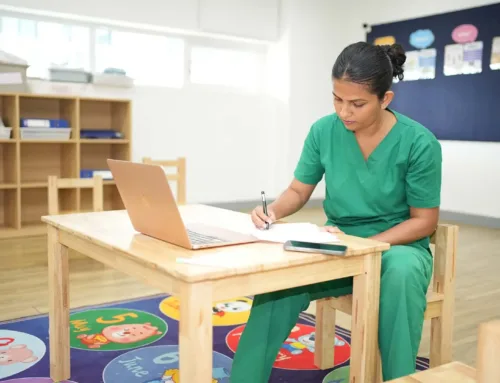Every child learns differently. Some pick up reading and math quickly, while others need more time and support. As a parent, it can be difficult to know whether your child is simply developing at their own pace or if they need extra learning support. Identifying the signs early and knowing what to do next can make a big difference in your child’s confidence, progress, and future success.
Here’s how to recognize the need for learning support for children in Cambodia, and where to go from there.
Signs Your Child May Need Learning Support
Children rarely say, “I’m struggling at school.” Instead, they show it through behavior, frustration, or falling behind academically. Here are some common indicators:
-
Struggles with basic skills like reading, writing, or math despite regular practice
-
Frequent confusion about instructions or classroom routines
-
Avoidance of schoolwork or complaints about feeling “stupid” or “slow”
-
Behavioral issues such as acting out, zoning out, or refusing to go to school
-
Delays in speech or language development, difficulty expressing thoughts clearly
-
Low confidence compared to classmates
-
Difficulty focusing or following multi-step instructions
If you notice several of these signs for more than a few months, it may be time to explore learning support options.
What Causes Learning Difficulties?
Learning difficulties can have many causes, including:
-
Learning differences like dyslexia, dyscalculia, or ADHD
-
Speech and language delays
-
Emotional or social challenges
-
Unidentified hearing or vision problems
-
Mismatch between the child’s learning style and the teaching method
These challenges don’t mean your child isn’t smart—they simply need a different approach or more personalized support.
What to Do Next
-
Talk to Your Child’s Teacher
Start by discussing your concerns with your child’s teacher. Ask about your child’s progress, participation, and classroom behavior. Teachers can provide valuable insights and may already have support strategies in place. -
Request an Educational Assessment
An assessment helps identify your child’s strengths and challenges. In Cambodia, assessments are offered by special education centers, therapists, and some international schools. This step is important to create a tailored support plan or Individualized Learning Plan (ILP). -
Explore Learning Support Services
Depending on your child’s needs, the following services may help:
-
Speech and language therapy
-
Occupational therapy for sensory or motor coordination challenges
-
One-on-one academic support or shadow teachers
-
Special education programs with modified curriculum
Look for providers with qualified staff, clear progress tracking, and a collaborative approach with families.
-
Support at Home
You can reinforce learning by:
-
Creating a quiet, structured homework space
-
Using visual aids and routines
-
Breaking tasks into small, manageable steps
-
Offering praise for effort, not just results
-
Reading together and encouraging open communication
Learning Support in Cambodia
While special education is still growing in Cambodia, there are reputable centers, like OrbRom Center and schools in Phnom Penh and other major cities that offer high-quality support. Many also partner with parents to build consistency between home and school.
Early intervention can transform a child’s learning experience. By recognizing the signs and seeking the right help, you’re giving your child the tools and confidence to succeed.
If the information about the school is not accurate and insufficient, Contact us.
Do you want to register your school? Click here.








Leave A Comment